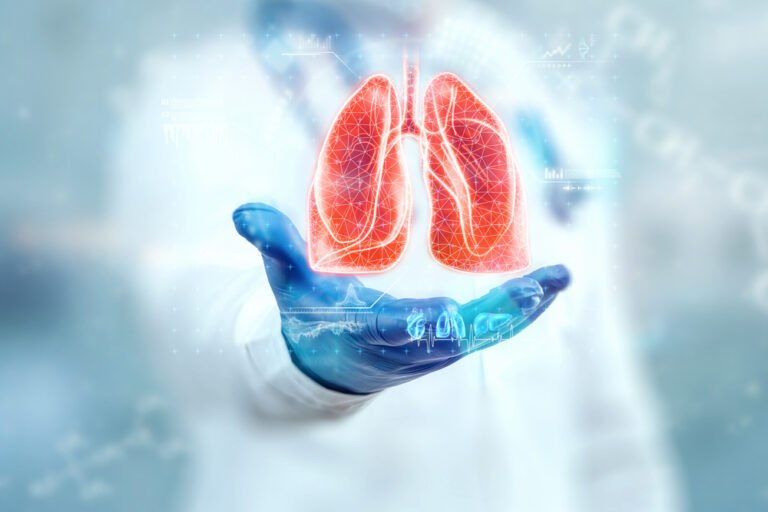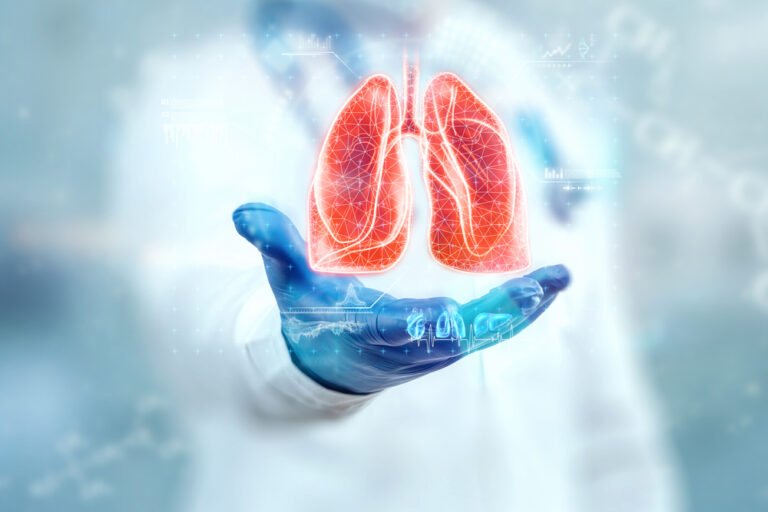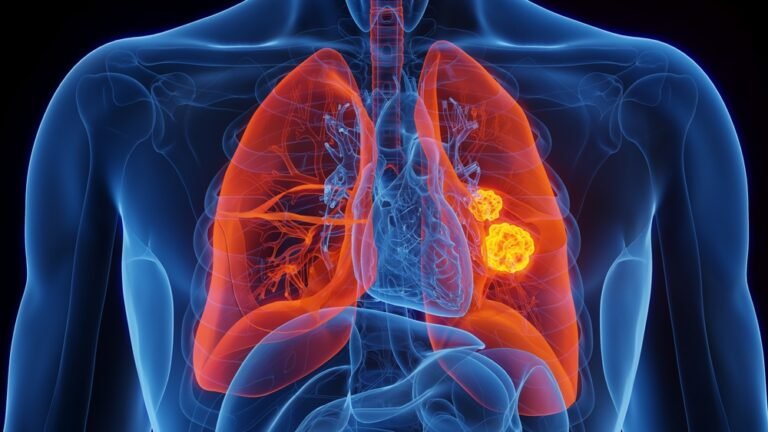Allergy basically causes swelling of airways. Airways become narrow and it becomes difficult for air to pass through them during the act of breathing.
Do allergies cause chest pain?
Yes, allergies can cause chest pain through allergic asthma, allergic bronchitis, or sinusitis.
What Happens to Airways in an Allergic Attack?
Do allergies cause chest pain? During an allergic attack, the airways experience swelling. Airways become narrow, making it difficult for air to pass through during breathing. Additionally, mucus production further impairs the passage of air, adding more resistance. As a result, a person may experience chest pain, chest tightness, congestion, and difficulty in breathing—all typical symptoms of an allergic attack. These changes are commonly seen in asthma and bronchitis.
In the accompanying image, it’s clear that an airway under an allergic attack has a smaller caliber and excess mucus, narrowing the passage and creating resistance to airflow. Do allergies cause chest pain? Yes, this narrowing of the airways results from chemicals released into the bloodstream in response to allergens. These chemicals, primarily histamine, cause these changes in the airways, leading to symptoms.
Histamine, in addition to affecting the airways, also impacts other organs like the nose (rhinitis), sinuses (sinusitis), eyes, and skin (urticaria), leading to symptoms like runny nose, headaches due to sinus inflammation, itchy red eyes, and rashes.
In rhinitis or sinusitis, there is post-nasal dripping of mucus into the throat, which irritates the airways and leads to airway congestion. This congestion manifests as chest pain, a symptom that might make you wonder, can allergies cause pain in chest? The answer is yes, as congestion, cough, and breathlessness are common in such cases.
Reversing Allergy Symptoms
All these symptoms can be reversed with medications like:
- Antihistamines
- Adrenaline/epinephrine
- Steroids
- Nasal decongestants
- Eye drops containing antihistamines and decongestants
- Bronchodilators for narrowed airways
Prevention Strategies
Do allergies cause chest pain? Prevention is key. There are several steps you can take to avoid allergens that trigger symptoms.
Outdoor Allergens (e.g., Pollens and Molds)
These are difficult to avoid, but during peak seasons when symptoms are most severe, consider these measures:
- Close the windows at home and in the car.
- Use air conditioners to filter the air.
- Stay indoors when possible.
- Shower before bed to remove allergens from hair and skin, which can help reduce contamination of the bedding.
- Use over-the-counter saline sprays and rinses to wash allergens from the nasal lining after outdoor exposure.
- Remove allergenic plants from immediate surroundings.
Indoor Allergens (e.g., Dust Mites, Cockroaches, Pets)
Dust Mites: Dust mites colonize bedding, sofas, carpets, or any woven material. Although they don’t bite, can allergies cause pain in chest? Yes, the debris from dust mites can lead to chest pain in individuals with allergies.
- Encase mattresses, pillows, and duvets in finely woven allergen-impermeable covers.
- Wash bedding weekly in warm water with detergent.
- Control humidity.
- Use area rugs instead of fitted carpets, as they can be easily removed and washed.
Cockroaches: Use poison bait or other poisons to control them. Consult a professional exterminator for severe infestations.
Pets: Ideally, remove animals from the house and keep them outdoors. If pets must stay inside, use HEPA (High-Efficiency Particulate Air) filters and replace them as recommended by the manufacturer.
Do allergies cause chest pain? As we’ve discussed, chest pain is a symptom of allergic reactions, whether from outdoor or indoor allergens. By understanding these triggers and taking preventive measures, you can reduce the occurrence of such discomfort. And if you ever ask yourself, can allergies cause pain in chest? Remember, the answer is yes, and knowing how to manage your environment and symptoms can make all the difference.








